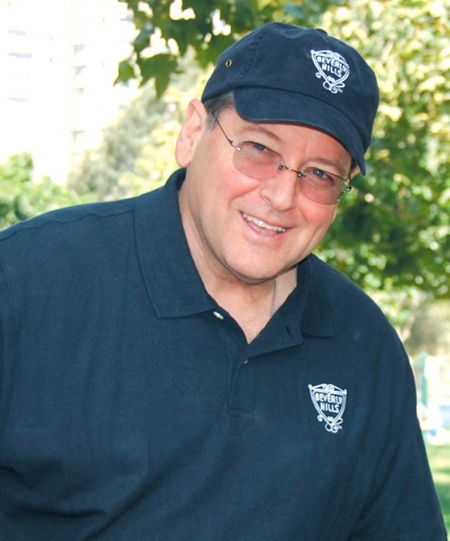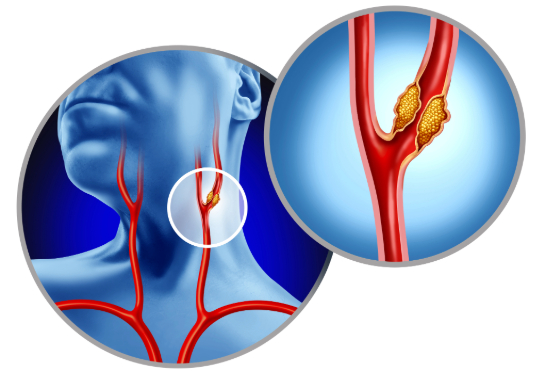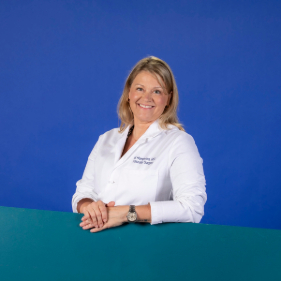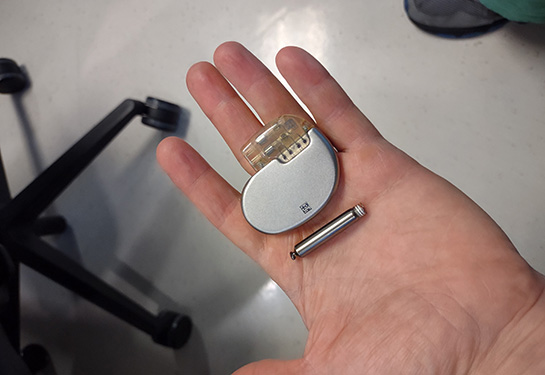UC Davis Health enrolls first patient in carotid artery stent trial
Medical Center is one of five sites in the U.S. participating in C-GUARDIANS II Trial
For years, Roderick Wood knew it was a matter of when — not if — he would need stents placed in his carotid arteries.
Wood had been diagnosed with carotid artery disease, a form of atherosclerosis, or a buildup of plaque, in the main arteries in the neck that supply oxygen-rich blood to the brain. If left untreated, the buildup could lead to a stroke. Additionally, he has a high level of Lipoprotein (a) which increases the likelihood of a heart attack, stroke and aortic stenosis.
Wood agreed to get a stent, a tiny metal tube that doctors insert to keep blood flowing to the brain despite narrow or blocked arteries.

A few days prior to his procedure at UC Davis Medical Center, he was contacted by Misty D. Humphries, UC Davis Health interim chief of vascular surgery and co-director of the heart and vascular center.
“Dr. Humphries called me and suggested I participate in a new trial they were starting,” shared Wood. “For the trial, they would use a new type of stent, and she thought I was a good candidate for the procedure.”
Humphries explained that with traditional stents, there’s a chance that plaque can slip through the wire mesh, which might lead to a blockage and cause a stroke. But the stents being used in the clinical trial have a special outer covering that helps keep plaque in place. That not only lowers the risk of stroke during the procedure but also makes it less likely for plaque to build up again in the same spot later.
“She clearly explained the procedure and potential benefits of participating in the trial, so I decided to do it,” recalled Wood. “I am all for new technology and I figured this could further the science for the next person in my position.”
UC Davis is one of only five sites for the clinical trial
The C-Guardians II Trial is a major clinical study taking place at just five hospital sites across the United States, including UC Davis Health.
The goal of the study is to evaluate how safe and effective the CGuard Prime carotid stent system (80cm) is for patients needing treatment for carotid artery disease.
This stent system is used along with the ENROUTE Transcarotid Neuroprotection System (NPS), which has already been cleared by the FDA. The stent system helps protect the brain during a procedure called Transcarotid Artery Revascularization (TCAR) — a minimally invasive alternative to traditional surgery for patients at higher risk of complications.
The system works by temporarily reversing the direction of blood flow in the carotid artery, so that any loose plaque or debris is captured before it can travel to the brain. Instead of using a traditional filter placed farther up in the artery, this system collects and filters the blood through a special controller, then safely returns the clean blood through a vein in the leg.
During the TCAR procedure, doctors place a small tube (called a sheath) into the carotid artery and connect it to the ENROUTE system. When the blood flow is reversed, the team uses a balloon and the CGuard Prime stent to open the narrowed artery and trap plaque, which reduces the risk of future strokes.
“Enrolling our first patient in this important study shows just how committed we are to giving physicians reliable tools that help protect patients from stroke — both safely and effectively.”—Misty D. Humphries
Intervention leads to quick recovery
After just one night in the hospital for observation, Wood was discharged and went home. He was amazed by the speed of his recovery.
“I figured with an incision that size, I would have felt some discomfort, but I had zero pain,” Wood exclaimed. “I didn't even need to take a Tylenol.”
Now a few weeks after his surgery, Wood is preparing to have the same procedure on his left carotid artery.
“I'm thankful for the care I received from Dr. Humphries and her entire team,” he shared. “After the success of this first procedure, I feel good about getting my left-side done and being able to move forward without the worry of suffering a stroke from any buildup.”
A leader in TCAR procedures
UC Davis Health has performed over 200 TCAR procedures since 2019, the most of any hospital in the Sacramento region. The medical center has been named a TCAR Center of Excellence for the high quality of its care team and patient outcomes for TCAR procedures.
“We are committed to advancing innovation in vascular care,” said Humphries. “Enrolling our first patient in this important study shows just how committed we are to giving physicians reliable tools that help protect patients from stroke — both safely and effectively.”





